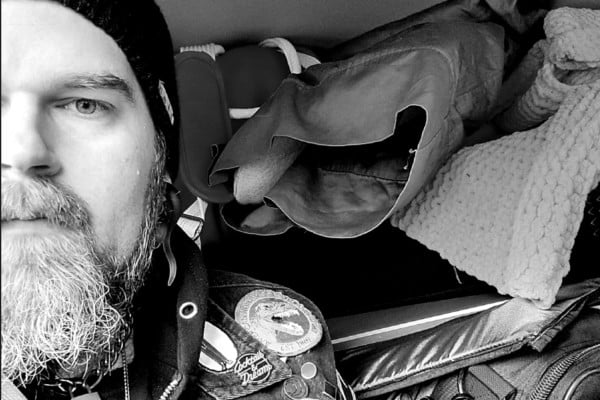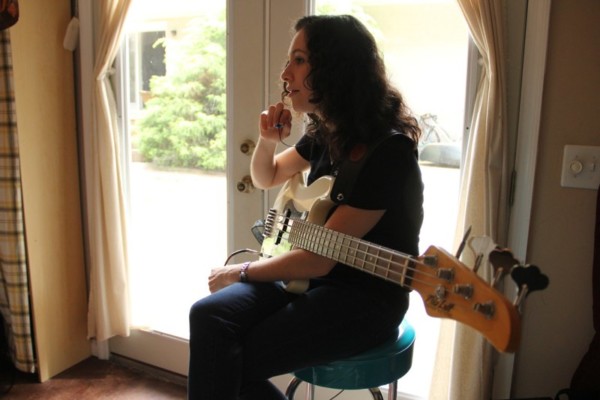How Much Should I Get Paid for Gigs?

Q: I gig about 10-16 times a month on double bass and electric and live in a rural part of the UK. Some gigs involve a drive of 50-100 miles for about ?50-75. Do you have a minimum fee for local work, and a max distance you will drive for small bar type gigs? I am trying to find my place in either the freelance world; adding up the small gigs and some private teaching to make a living, or the weekend warrior-type scenario with a day job.
A: This is a tough one and I think the answer will be a little bit different for everyone. There’s a balance to be struck, but for me, that line is ever shifting depending on how busy I am, how in demand I may be, and how much I enjoy a particular band.
While I was “coming up” and trying to get busy enough to ditch my job at a coffee shop, I took literally every gig that I could get. My logic dictated that whatever the gig lacked in artistry or money, it could make up for in plain and simple experience. I figured that there was something to be gained from almost anything. This was especially true once I quit that last day job. I needed to expand my network, make a name for myself, etc. I needed everybody to know and let other people know that, when you called me for a gig, I would show up early, have the material down pat and be a joy to work with. That meant working with as many different people as possible.
As I got busier, that line shifted. I had a three part equation for accepting gigs. It had to either a) pay well b) be artistically rewarding or c) be a good networking opportunity. I said no to anything that didn’t fit at least one of those criteria.
Now, I take everything on a gig-by-gig basis. I still have the natural tendency to say yes to everything if there’s a hole in my calendar, but I simply won’t do any gigs that I don’t want to do any longer.
For example, just within the past few months, I’ve been off the road for the most part and have been enjoying playing locally with both my usual suspects as well as trying to meet new musicians on the scene. I took gigs five hours away for about $100, simply because I liked the people in the band and don’t get to see them much. I took a weekly gig three hours away for all of December, because I love the drummer and wanted to better get to know the rest of the guys in the band (expanding my circle of players). I’ll be playing for $50 this coming Sunday, actually, simply because it is a new batch of people (friends of friends), and I was curious. So I said yes.
I know a lot of guys at my level and with less busy schedules than mine that turn down anything but the best paying gigs. For me, that doesn’t translate. I love making music, and I enjoy meeting new people, so in these circumstances, I only tend to say no if a) I just don’t have time to prepare, b) I just don’t like the music, c) I don’t jive with the people. Otherwise, I’m happy to go out there and do it (and sometimes drive quite a ways to make it happen).
You do need to make sure that you are doing the math correctly, though (and everybody’s math is different). There is the concrete math: “Will I spend as much on gas as I will get paid?”, for example. Don’t lose money or spend half a day getting there, playing and getting home late for low-dough unless you truly just want to do the gig for your own reasons. You have to be the judge of your own time vs. money equation. Then there is the esoteric math: Will there be good musicians on the gig to meet? Is there an opportunity to make something else happen if I say yes and nail the gig? Will I enjoy myself or spend four hours in hell for $50?
To address your question directly, however, yes: I have a standard set of fees for any cold calls I get (wherein I have no way to tell how good or not it may be). It breaks down to something like this:
- Local gigs during the week: $100 or better
- Local gigs on weekend: $200 or better
- Session work: $500/day or $100 / track
- Gigs involving travel days: $300 or better per gig plus accommodations and per diem
- International gigs: $500 / gig or better
- Remote recording (from home): $100 / track (they supply charts – no time spent transcribing tunes)
I also work on a sliding scale. If I know that the budget doesn’t support my number but I want to help make it happen for the person/group, I’ll come down.
I also demand that I not make any less than the best paid sideman on the gig, if the pay scale is different for everybody on a gig.
Now, my numbers are much less than most of my peers. I have also been told that I would be perceived as in another class if my numbers reflected that class. For example: don’t leave the house for less than $500 and people will immediately put you in another category and the work will come. That may be true, but it doesn’t work with my personality. I may be too empathetic or maybe I’m just a sucker, but I like to help folks out (while also making sure that I don’t get taken advantage of). I know a lot of folks who wouldn’t do any of that for that amount of money but, like I said, everybody’s math is different.
In the end, you have to feel good about it. I say, err on the side of making it happen and being flexible, but if at the end of the day you don’t feel good about the amount of work vs. compensation, don’t do it again unless you get better compensated. If you think to yourself, “man, that took forever and didn’t pay well – but that was a blast!”, then it might be okay for you.
One of the things that makes me the player I am is the amount of gigging experience I have, I think. One of the things that got me so many varied gigs under my belt was so many years gigging 3-6 nights a week, usually while working full time. I may have been tired, but I was learning a lot about what I needed to work on as well as learning the ins and outs of being a professional musician. It’s the paying dues part of it all, I guess.
In many things we choose to do in life, your level of competency comes down to how much you are willing to work and at times, suffer for it. That bar is definitely ever shifting for each one of us.
Have a question for Damian Erskine? Send it to [email protected]. Check out Damian’s instructional books, Right Hand Drive and The Improviser’s Path.



